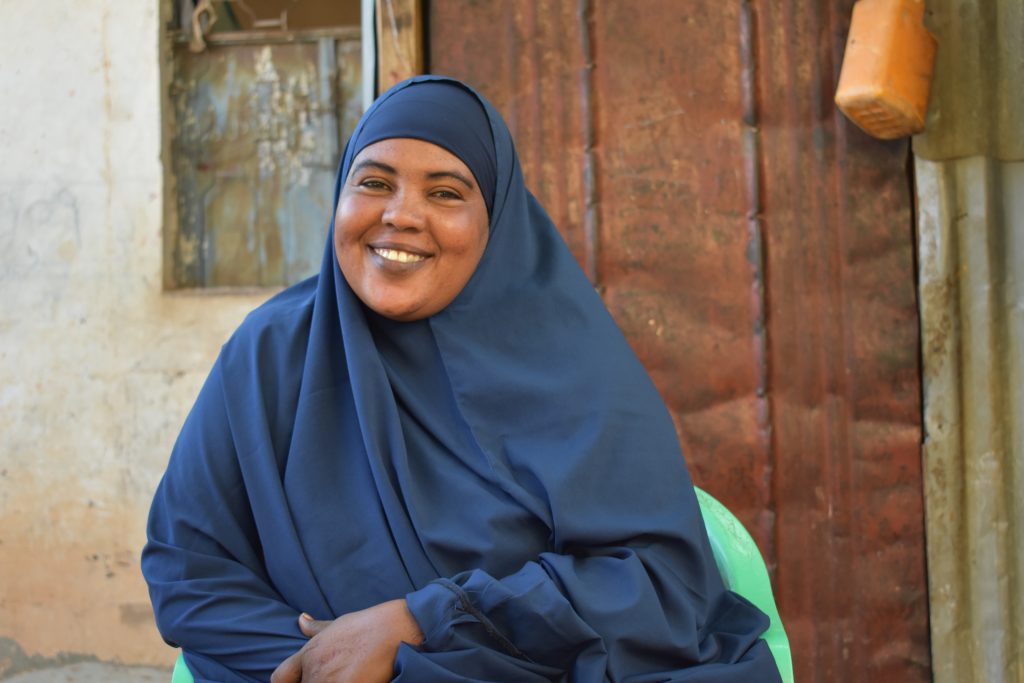Fartun, a mother engraved with hardship for years has turned to be a smiling mother full of satisfaction and joy. For the past decade, Fartun has called the Salama 2 camp home, as a mother of eight, her days were often filled with the struggle to meet the basic needs of her family. Yet, despite her tireless efforts, the challenges of cleanliness and hygiene had long overshadowed her life, making everyday existence even more daunting.
Through the Lifesaving and Sustainable WASH Services to Crisis-affected Communities (LISS) project, Fartun’s life took a turn and all over she started to gain knowledge and understand the concept of hygiene and sanitation. Fartun received a hygiene kits composed of essential hygiene items. The kits allowed her family to have a cleaner living conditions and also instilled a sense of pride, transforming an environment that had long felt neglected.
Furthermore, ADRA Somalia distributed hygiene kits to 250 households within Salama 2 IDP camp. The attention to hygiene resonated deeply; it was more than just items; it was about restoring dignity and hope. After years of coping with limited resources, the arrival of these kits initiated a change both practical and emotional.
Fartun organized her routines around the kit, introducing systematic cleaning practices that had been out of reach before. The simple act of maintaining hygiene began to reflect a newfound strength within her. This change not only affected her family but rippled through the camp, with other mothers observing the positive changes and stepping forward to share ideas and strategies for cleanliness.
The dignity kits included items that empowered Fartun to manage her family’s hygiene effectively, enabling her to teach her children about self-care and health. With these essentials, she was able to not only maintain cleanliness but also contribute to the well-being of the camp. The hygiene promotion campaigns initiated through the project further reinforced Fartun newfound knowledge, providing her with information on disease prevention and hygiene best practices.

According to Fartun what began as an external intervention evolved into a community-wide cultural shift towards maintaining hygiene. Fartun and her community members started engaging their children in cleaning routines; it was an opportunity for them to connect with their environment and understand the importance of cleanliness. Gradually, many children learned to appreciate the value of a clean living space, cultivating habits that would benefit them for years to come.
The LISS project was not merely about distributing hygiene kits but captivating attention to dignity and empowerment within crisis-affected populations. With the support, Fartun has nurtured a community environment where cleanliness and health are valued, influencing a generation of children who will carry these lessons into their futures.
Through collective effort, freshly cleaned living spaces now coexist with aspirations for better health, united in a shared purpose among the camp’s inhabitants. Today, as she stands among her children, Fartun not only sees a future illuminated by improved hygiene but a community strengthened through shared experiences, determination, and the spirit of togetherness in the face of adversity. The journey has been long, but the tides of change have begun to turn, marking the beginning of a new chapter for families like hers in Galkayo.

